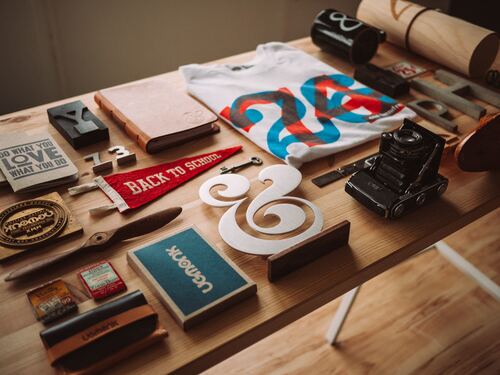Navigating the Sea of Memories: What to Do with a Loved One's Belongings After They Pass Away

Coping with the loss of a loved one is a deeply personal journey, unique for every individual. Amidst the profound emotions and grief, one of the most challenging tasks can be determining what to do with the belongings of the departed. While the task may seem overwhelming, it's an important part of the healing process. Here are some sensitive and compassionate ways to approach this delicate task.
Remember, the process of dealing with a loved one's belongings after they pass away isn't simply about 'cleaning out' their stuff. It's an emotional journey that allows you to honor their memory, process your grief, and begin the healing process. It's okay to feel sadness, joy, nostalgia, and even confusion as you navigate through this sea of memories.
Ultimately, it's not the objects themselves, but the shared memories and emotions tied to them that truly matter. And although these belongings may move on to new places, the love and memories you shared will always remain with you.
- Allow Yourself Time to Heal: First and foremost, do not rush the process. There's no standard timetable when it comes to sorting through your loved one's belongings. Allow yourself the space and time to grieve. When you feel ready to start, proceed at your own pace. Remember, it's okay to pause and resume when you feel more emotionally equipped.
- Gather Support: When you're ready, consider involving family members or close friends in the process. Not only can they provide emotional support, but they may also wish to keep some items for their own sentimental reasons. Remember, it’s not just about dividing objects, but about sharing memories, stories, and laughter.
- Catalogue the Belongings: Create a comprehensive list of your loved one's possessions. This task can be overwhelming, but it helps ensure no item is overlooked. Consider breaking it down into manageable segments – room by room, or item category by item category.
- Deciding What to Keep: Undoubtedly, certain items hold significant sentimental value. A piece of jewelry, a beloved book, or a cherished photo album can be a tangible connection to your departed loved one. Keep these objects close as a way of preserving their memory. It’s okay not to make immediate decisions, you can create a 'maybe' pile and come back to it later.
- Distribution Among Family Members and Friends: After setting aside the items you wish to keep, consider if other family members or friends would appreciate a memento. This not only helps in reducing the volume of possessions, but also spreads the legacy of your loved one.
- Donate, Sell, or Recycle: For items that don't hold significant sentimental value, consider donating to charities, selling, or recycling. Many items can find a new life in a new home, perhaps even bringing joy or utility to someone else.
- Seek Professional Help: If the task is too daunting, consider hiring a professional estate clearing service. These professionals can help sort, catalog, and distribute the belongings based on your instructions. Additionally, grief counselors can provide emotional support during this difficult time.
- Create a Memorial: Consider using some of your loved one's belongings to create a memorial. This can be as simple as framing their favorite scarf or making a quilt from their clothing. Such tokens can serve as a comforting reminder of the person you loved.
Remember, the process of dealing with a loved one's belongings after they pass away isn't simply about 'cleaning out' their stuff. It's an emotional journey that allows you to honor their memory, process your grief, and begin the healing process. It's okay to feel sadness, joy, nostalgia, and even confusion as you navigate through this sea of memories.
Ultimately, it's not the objects themselves, but the shared memories and emotions tied to them that truly matter. And although these belongings may move on to new places, the love and memories you shared will always remain with you.
Recent
Archive
2024
2023
2020
2019
November
From Speed to Solace: A Journey of Faith911 OperatorLarry the Cable GuyTwo DreamsEllie's T-Ball CoachGrief the UnspokenAmazing GraceHeaven Just Got BetterTo-Do ListEllie's Last Sticky NoteThe Baseball InstructorMalaikye's Legacy Lives On!Hope After SuicideLydia's LoveLessons From TragedyBack to Happy!Faith, Hope, and Love!!!A Father's Broken HeartRachel, You're My Hero!Remembering Henry's LaughLove Never FailsElla's LightPromise and Beauty in the DarknessHope After
December
2018
2016
2015
December
